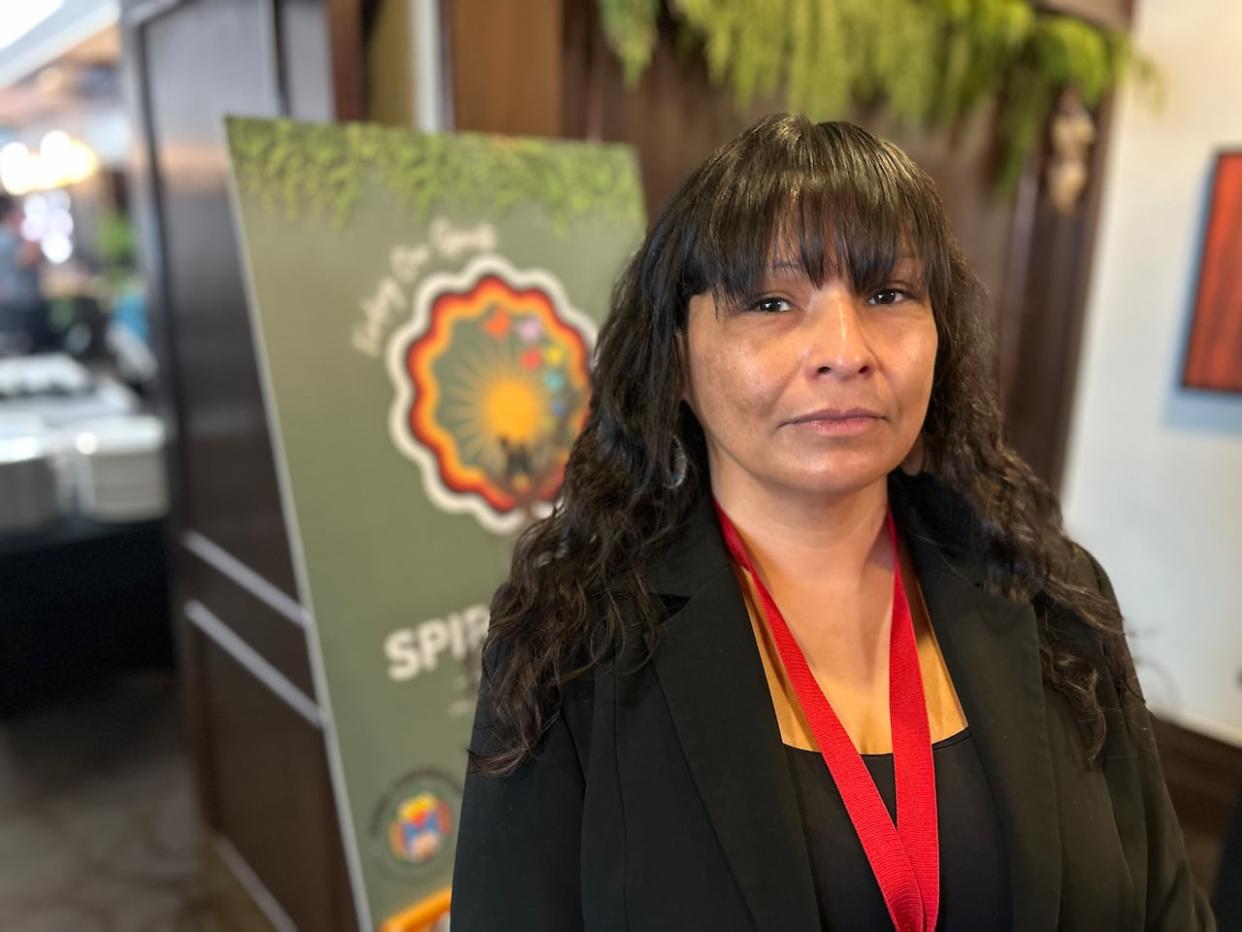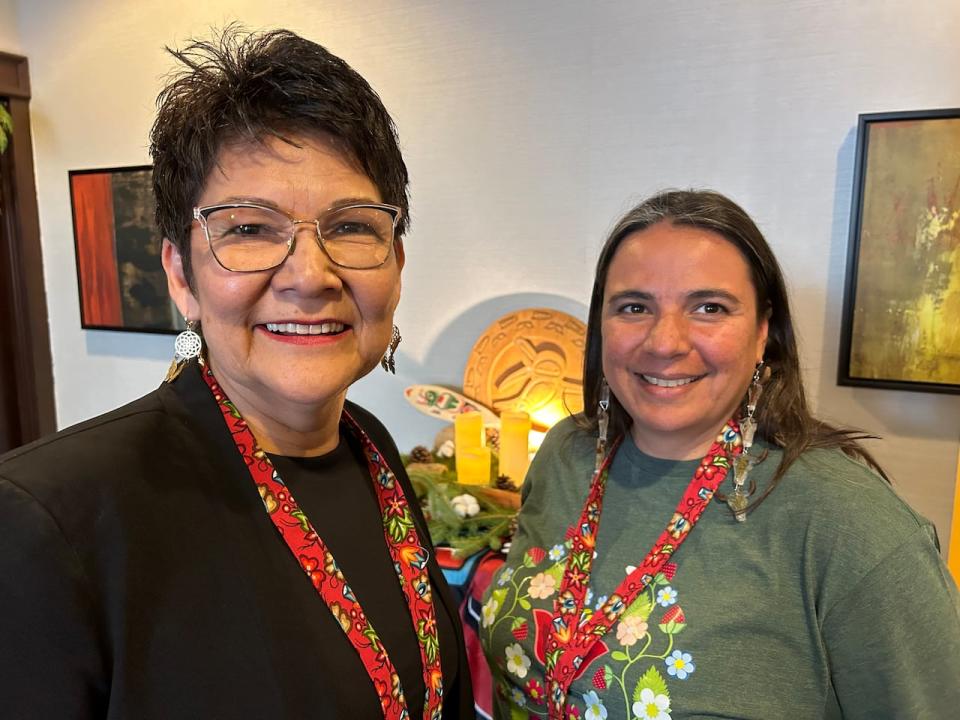'I'm not alone': Sixties Scoop survivors gather in Winnipeg to reconnect, heal

It's been a lifetime since Leticia Racine was taken from her home and placed into foster care, but she still remembers what it felt like to not know where she belonged.
"It was about identity, I didn't know who I was," said Racine, who was born in Portage la Prairie, Man., in 1976 and was taken into foster care six weeks later.
Racine was among hundreds of Sixties Scoop survivors who attended a Winnipeg conference on Sunday to share their stories, reconnect with their communities and access support.
The event, hosted by the Southern Chiefs' Organization and the Anish Corporation — which promotes health, wellness and emotional support for Indigenous peoples — is welcoming survivors from across Canada and from the U.S.
"When we get together, we understand each other, and it feels like home," Racine said.
The government's removal of Indigenous children from their homes during the late 1950s to the 1980s, and their adoption into non-Indigenous families, is known as the Sixties Scoop.
Angie Hutchinson, who runs a healing program through the SCO, said the event not only brings survivors together to heal, but also draws the public's attention to the impact the Sixties Scoop had on families and communities.
"I think that some folks might be aware of it but might not understand really the impacts of what that experience was of being removed from your family, your community, and that disconnection from your culture, your language, your family supports," she told CBC News at the conference.

Eva Wilson Fontaine, left, the executive director of the Anish Corporation, and Angie Hutchinson, right, who's with the Southern Chiefs' Organization, were at the conference Sunday. (Kevin Nepitabo/CBC)
Racine said by the time she was six months old, she had been in six different foster homes.
She later became the centre of a lengthy legal battle between her foster parents, biological mother and Long Plain First Nation after her foster family filed to adopt her. The Supreme Court of Canada ruled in favour of the adoptive family in 1983.
She continued struggling with her identity as she grew up, and in her early 20s, she finally found out which First Nation she was from.
"It wasn't until I connected to my community, and I started asking the questions, 'Who am I?', ' Where am I from?' … that I started to develop and get those answers," said Racine.
After that, she said she could finally begin to heal.
'Still hurtful, still painful'
For survivor Marilyn Demeria, that feeling of connection at Sunday's event is something she can lean on.
"Knowing that I have family here … that love me and support me is very, very, very calming and peaceful. I'm not alone," said Demeria, who lives in Winnipeg.
Demeria said she's spent a lot of her life living in shame and anger after she was taken from her family, but she hopes to find peace one day.
"[It's] still hurtful, still painful," she said. "I was stolen right out from under my dad's arms."
Sunday's conference, which was held at Hilton Winnipeg Airport Suites, included healing activities and keynote speakers, who talked about trauma, grief and supports for survivors, a press release on the event says. It also offered access to mental health and cultural supports
The conference continues into Monday.
Eva Wilson Fontaine, the Anish Corporation's executive director, said the conference is also a chance for people to learn the meaning behind some Indigenous practices.
"It really is about a sense of coming home, acknowledging those children that were taken, not at their choice," she said.
"It's likely important to all of these adoptees that are coming about knowing who they are, where they come from."
Racine encouraged other survivors to reach out to their communities.
"It's safe to come home now," she said. "There's always been a place for you."
"Start with 'Who am I? Where do I come from? Where am I going, and what is my purpose?' and those answers will come to you."


